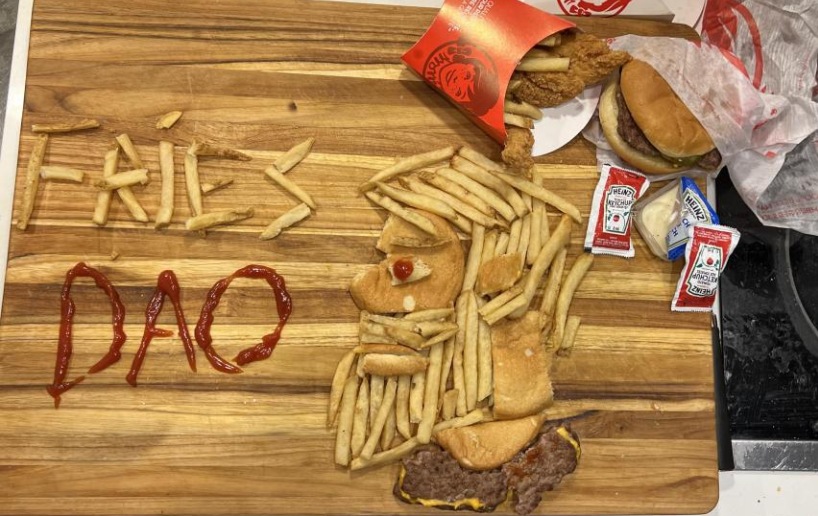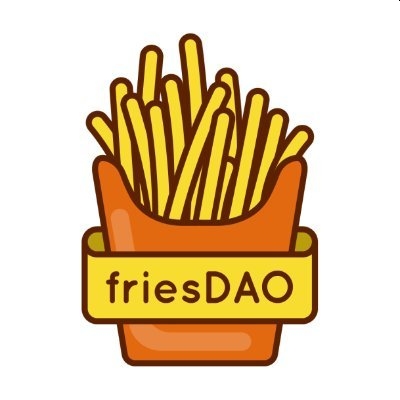Crypto community friesDAO wants to acquire fast food restaurants and provide jobs and food for ex-crypto traders

Crypto winter is here and many crypto investors probably don’t want to flip burgers to make ends meet. FriesDAO certainly does, but for a different reason. FriesDAO, a decentralized autonomous organization is testing whether an open community can successfully run a real-world, fast food enterprise. FriesDAO wants to start a crypto-crowdfunded fast-food franchise.
Intending to bridge real-world assets into DeFi and on-chain platforms, friesDAO is the result of like-minded individuals who believe that traditional businesses can accommodate blockchain-based governance.
Members who wish to participate in the DAO can donate to its treasury and receive membership tokens which also serve as governance rights for the DAO’s future growth and processes. Community members begin donating to the treasury on January 29 and the raise intends to continue into mid-February. friesDAO is negotiating with franchise owners to acquire well-known profitable fast-food franchises using the friesDAO community treasury.

The funds raised by the community treasury will be used to contract traditional companies to acquire and operate franchises of well-known fast food restaurant brands on behalf of friesDAO. Any operating profits, despite being owned by the contract organization, can be influenced by DAO governance for use towards store improvements or expansion of additional stores. Moreover, building on-chain protocols that are able to access store operation data from sales to logistics allows the DAO to create additional blockchain utility, improve the efficiency of decentralized governance, and integrate into other DeFi protocols.
Key members who are helping to initially organize the community as advisors include Drizly co-founder Brett Beller as well as Launch Code Capital partner and crypto veteran Bill “Swo” Lee. Other advisors who have joined to help in the DAO’s cause include Horizen Labs advisor Rowan Stone who also works for a major cryptocurrency exchange and DeFi developer vfat, renowned creator of vfat.tools. FriesDAO has also identified franchising veterans Olivier Meyer and Jean-Clauder Meyer who co-founded and run a 170+ quick-service restaurant business to help advise and oversee operations of the stores. The community ultimately hopes to establish a gold standard operational framework with its first several stores such that any future members can easily reproduce it, as part of a pathway to decentralization.
DAO-governed fast-food restaurants cater to the original spirit of franchising. The fast-food industry is an ideal target for DAO governance because it has proven to be extremely successful with a franchise success rate of more than 90%. The governance structure means friesDAO is uniquely positioned as a partner for big restaurant chains wanting to tap into the potential of the crypto space. FriesDAO provides a novel opportunity for such companies to quickly gain access to a wide crypto audience as well as benefit from a first-mover advantage.
“The future of businesses could very well be run by DAOs powered by a strong and intelligent community, but only if they have clear and measurable goals and a nimble governance system,” said Lee. “FriesDAO is essentially a decentralized research group to experiment as the first crypto community to run real retail businesses in a successful, scalable manner and set an example for future DAOs.”
As part of its research mission, the community intends to release annual reports on its performance, findings, and experience in its franchising endeavors as a DAO which can help promote the legitimacy of the crypto space.
Founded a few months ago, FriesDAO is a decentralized autonomous organization that’s democratizing access to the fast-food industry, giving the crypto community the chance to participate in community-governed restaurant franchises. By acquiring franchises and building on-chain utility around them, friesDAO will gradually expand its footprint to operate a multitude of restaurants under its governance model while enabling unique on-chain data integration between restaurants and blockchain-based protocols.

